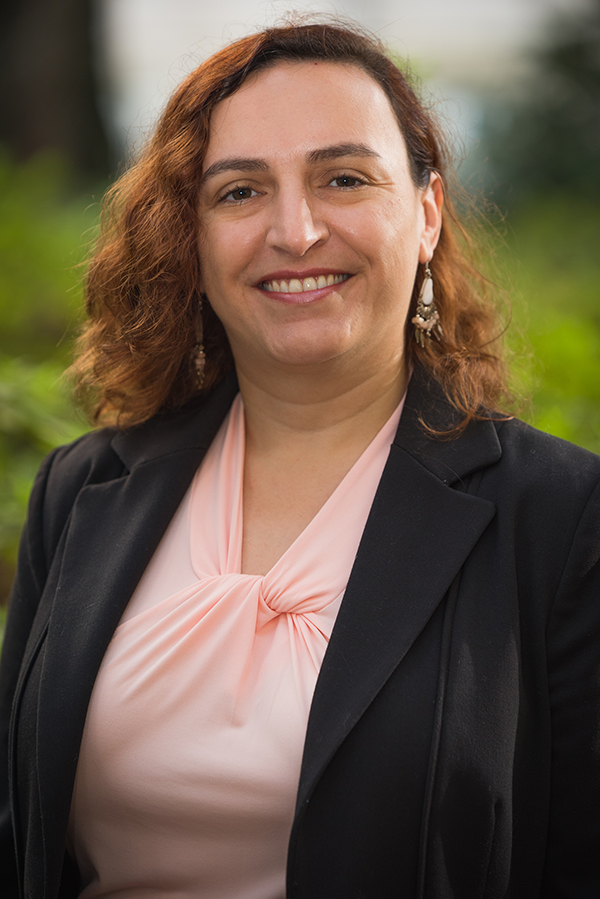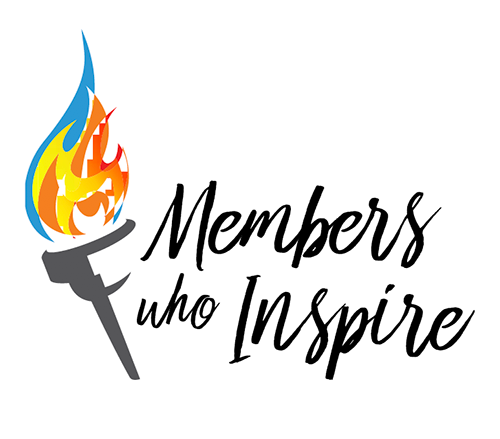Living through Hurricane Katrina inspired Alessandra Jerolleman's disaster justice advocacy

“I’m trying to combine the participatory action research model from the social sciences that I’ve spent the last 20 years being a partner on, with community work and advocacy, with people-centered lawyering,” Alessandra Jerolleman says.
Alessandra Jerolleman was living in St. Bernard Parish in 2005, when Hurricane Katrina swept over and destroyed most of the low-lying area outside of New Orleans.
She lost her home, her car and much of her community to the storm’s powerful surge and flood waters. But Jerolleman, who was interested in urban school reform and working toward a master’s in public administration at the University of New Orleans, found the hurricane changed her life in another profound way.
Through her graduate program, Jerolleman met people at the University of New Orleans Center for Hazards Assessment, Response & Technology who focused on preparing for and responding to natural disasters. While she initially focused on how disasters could impact schools and families, she became drawn to hazard mitigation and disaster recovery themselves.
Jerolleman began working at the center as a graduate research assistant—the first of many roles over the next two decades in which she would partner with communities in Louisiana and other states to support disaster justice, equitable recovery and just climate adaptation.
“We had a catastrophic loss in St. Bernard Parish, and it set in motion a series of events that I think led me to where I’m at today,” says Jerolleman, who is now the director of research at Loyola University New Orleans College of Law’s Center on Environment, Land and Law. “Although, over my career, everything has come back together in a lot of ways.”
Finding a new direction
Jerolleman was born in Peru and came with her parents to the United States when she was young. They moved to the Washington, D.C., area to be near relatives who worked for the Organization of American States, and as a child, she remembers being curious about the world.
“Growing up in a family of immigrants … I was conscious of what was going on internationally as well and wanted to be involved with making things better in some way or another,” says Jerolleman, who later became the first in her family to attend college.
She went to Tulane University, where she majored in English and Spanish. But, she adds, because she took out loans, she also had several jobs, including working in coffee shops and tutoring kids.
“There were definitely penalties for that,” Jerolleman says. “Professors were not understanding if you turned something in late because of work. And I heard more than once, ‘If you can’t afford to be here, you just shouldn’t be here.’ But it was the thing that I was interested in and that I wanted.”

Jerolleman graduated in 2003 and taught high school for a year before starting in the master’s program at the University of New Orleans. After her transformative experience with the Center for Hazards Assessment, Response & Technology, she worked with a local consulting firm to provide information about the Road Home recovery program to homeowners affected by Hurricane Katrina.
“It was a lot of older families holding all they had left of their belongings in a paper bag, not understanding the system and the paperwork,” Jerolleman says. “I had, at that point, a good bit of education, but I also had a really hard time understanding our paperwork and our process.”
“That for me was really formative in how I think about recovery and how I think about the world of bureaucracies and the law, and policy and administrative discretion,” she adds.
Jerolleman earned her master’s degree in 2006 and began pursuing a PhD in urban studies. At the same time, she worked with two other consulting firms, where she assisted state and local jurisdictions and higher education institutions in Louisiana, Nebraska and many more states with hazard mitigation planning.
She also joined humanitarian organization Save the Children to help ensure children’s needs were addressed during emergencies in areas along the Gulf Coast.
In talking with other professionals doing similar work around the country, Jerolleman realized they could learn a lot from each other but had few opportunities to connect. In 2008, she co-founded and became the volunteer executive director of the National Hazard Mitigation Association.
“We built this community of leaders working in hazard-prone, risky areas, ranging from really rural, indigenous communities to urban areas,” says Jerolleman, who led the organization for seven years. “They could share direct resources and knowledge but also talk to each other about experiencing similar traumas and stress.”
Susan Garner was a student intern at the National Hazard Mitigation Association and describes her former boss and mentor and now close friend as one of the smartest and most compassionate people in her life.
“She always has her hand in so many different projects, and everything she does is for other people,” says Garner, now a housing specialist with the Louisiana Department of Health. “But she downplays it. You don’t necessarily know she has five current contracts and however many volunteer positions, plus all the other things people are picking her brain about.”
Putting ‘the pieces together’
After receiving her PhD in 2013, Jerolleman taught courses in nonprofit leadership at the University of New Orleans and in emergency management at both Tulane University and Jacksonville State University.
She has held several other positions in her field, including working on disaster recovery initiatives with the Federal Emergency Management Agency and on coastal community resettlement and community-based resilience planning with the Lowlander Center. As part of this work, Jerolleman assisted the First Peoples’ Conservation Council of Louisiana—which provides a forum for Native American tribes to identify and resolve natural resource issues—with grant writing and emergency preparedness.
She also worked with the Jean Charles Choctaw Nation, a tribe in southeastern Louisiana that lost most of its land to coastal erosion, with its application to the U.S. Department of Housing and Urban Development’s National Disaster Resilience Competition. While HUD approved the tribe’s plan for resettlement and provided funding to the state in 2016, the Jean Charles Choctaw Nation has since argued it was left out of decision-making.
Of all her experiences, Jerolleman contends that this one had the greatest impact on her.
“A lot of things came up that required legal expertise, but the tribe didn’t have an attorney,” she says. “I spent hours combing through regulations, trying to help them build arguments, but I didn’t have the training.
“That was when I decided to go to law school. I felt like I needed the tool in the toolkit.”
Julie Maldonado has known Jerolleman for more than a decade and wasn’t surprised she became a lawyer. Now the associate director of the Livelihoods Knowledge Exchange Network, Maldonado says they worked with some of the same communities on disaster recovery and resilience, and Jerolleman has always tried to stop injustice.
“Now she has this skill set and can take the law, interpret it and understand what are the true barriers but also where are the places to push on to pursue a more just path?” Maldonado says. “Her superpower is finding those in-betweens.
“To do that, you have to understand a system so intimately. That’s what she does.”
Jerolleman, who graduated from Loyola University New Orleans College of Law in 2023, lives with her husband near New Orleans, and has a daughter and two stepchildren.
She continues to serve as a community resilience specialist and applied researcher at the Lowlander Center. She notes that the Jean Charles Choctaw Nation filed a federal civil rights complaint against the state of Louisiana for alleged discrimination in the administration of its resettlement program in December.
Along with working at Loyola’s Center on Environment, Land and Law, Jerolleman also serves as the climate justice lead of the U.S. Geological Survey Climate Adaptation Science Centers.
“I’m trying to combine the participatory action research model from the social sciences that I’ve spent the last 20 years being a partner on, with community work and advocacy, with people-centered lawyering,” says Jerolleman, who joined the ABA in law school.
“And to me, my underlying belief is that all of these pieces go together—the front-line activism, the policy work on the Hill and the minutia of bureaucracy. Bringing all of the pieces together is the best chance we have.”
Members Who Inspire is an ABA Journal series profiling exceptional ABA members. If you know members who do unique and important work, you can nominate them for this series by emailing [email protected].



